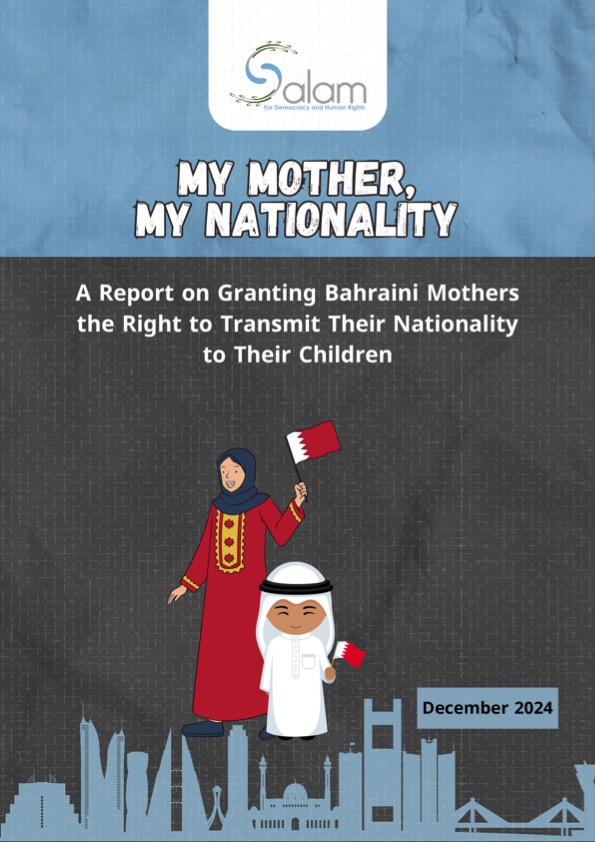Gender-based discrimination in nationality laws is a root cause of statelessness, which is the focus of the My Mother, My Nationality campaign. This issue particularly affects children born to Bahraini women who are unable to confer their nationality to their children.
Salam DHR launches its report ‘My Mother, My Nationality’, which addresses the impact gender-based discrimination has on Bahraini women and their children. Women are denied the right to grant nationality to their offspring, often resulting in statelessness of children when the father is foreign or stateless.
The issue of Bahraini mothers being denied the right to pass their nationality on to their children has impacted a wide variety of individuals and communities. The My Mother, My Nationality campaign seeks to amplify their voices and share the struggles of those impacted by statelessness. It aims to bring awareness to this critical issue and advocate for legal and policy changes to promote justice and equality. The ultimate goal is to end this form of discrimination that threatens the rights of children and mothers in Bahrain.
Ghady Zaayter from Salam DHR, stated:
“Bahrain’s denial of women’s right to pass their nationality on to their children initiates a chain of violations that deprive these children of the opportunity to live normal lives and fully integrate into society. Without nationality, individuals are unable to access basic rights such as education, healthcare, employment, or even the freedom to reside in or leave the country . The profound emotional toll these restrictions take on individuals and families affected by statelessness is immeasurable. These violations will persist until the Bahraini authorities amend the nationality law to allow mothers to confer their nationality and implement measures that specifically protect the rights of children.”
The report also reviews the legal framework safeguarding the right to nationality in Bahrain. Despite the Bahraini Constitution and the National Action Charter, both of which affirm gender equality, the Bahraini nationality law continues to enshrine this form of discrimination.
Additionally, the report includes testimonies from individuals directly affected by Bahrain’s discriminatory nationality law, who continue to experience social and economic marginalization.
One son of a Bahraini Mother, directly affected by discrimination in Bahrain’s nationality law, says:
“I’m deprived of everything – how can I not be disadvantaged? I have no nationality, no passport. I go to the hospital and face delays before they accept me. I go to school and face delays before they admit me. I can’t travel. I saw my dad only once. I can’t even cross the bridge [to Saudi Arabia]. My friends travel during vacations, but I can’t even see Saudi Arabia or snow like them. People go to matches, and I wish I could, but I can’t. Everything depends on having a passport and nationality, and I’m deprived of it all. I feel suffocated, Mom…”
The My Mother, My Nationality report presents several recommendations aimed at reforming the existing legislation to promote the rights of Bahraini women and their children, ensuring everyone’s right to nationality is granted fairly and equitably to all.


 العربية
العربية Français
Français Deutsch
Deutsch